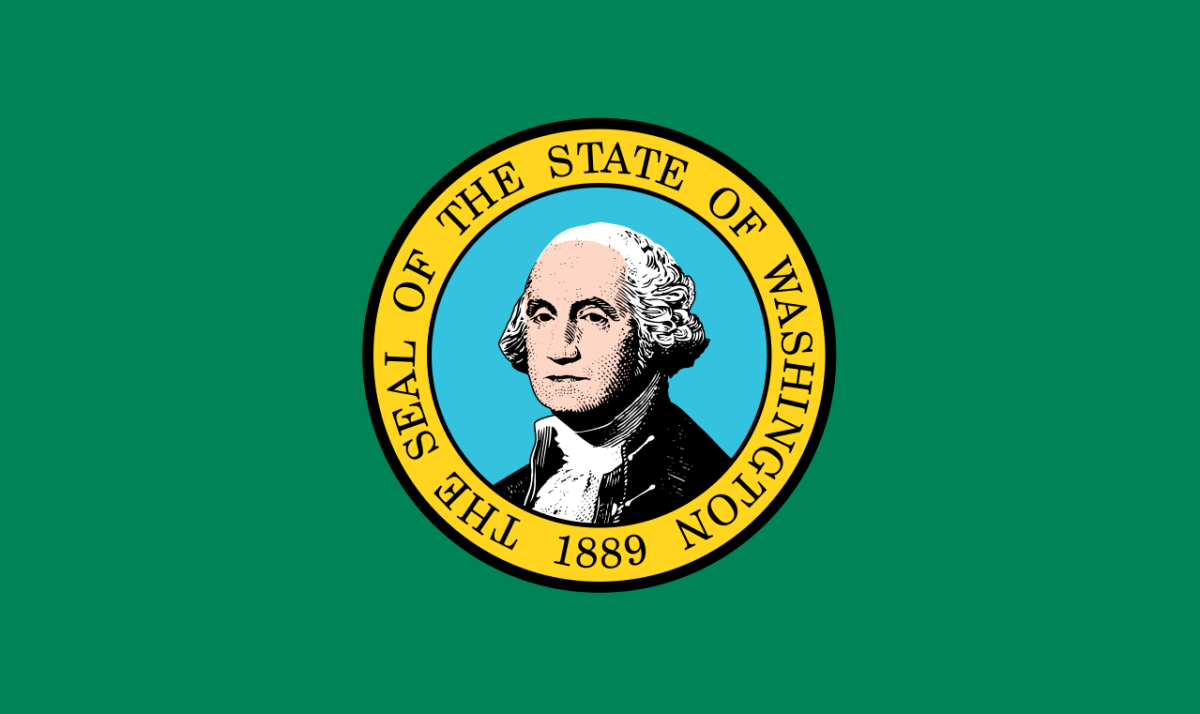Washington State Divorce Laws

In the State of Washington, around 5.5 marriages per 1,000 people took place in 2021, while a rate of 2.9 per 1,000 people was attributed to couples going their separate ways via divorce.
Many factors can be linked to the breakdown of a marriage and some of the most common reasons why a relationship heads for divorce are domestic violence and substance abuse.
In Washington State, domestic violence accounted for almost half of all crimes against persons in 2022. A significant chunk of the logged cases involved unmarried and married couples, as well as ex-partners. During the same year, the state ranked third nationwide in terms of the percentage of adult drug users based on the total population.
If you find yourself on the brink of leaving a marriage that no longer serves you or if your spouse decides to part ways with you, know that divorce can be a grueling process that requires you to make choices with possibly long-lasting effects. With this in mind, it is crucial to learn what to do prior to starting the dissolution of your marriage or after being served divorce papers.
Is Washington a No-Fault State When It Comes to Divorce?
Yes, divorce in Washington State is subject to no-fault laws. You don’t need a reason apart from an “irretrievably broken” partnership to end your marriage. This is where the term “irreconcilable differences” comes in; if you and your spouse can no longer agree on most things — especially major life decisions — your marriage may be deemed irretrievably broken. This also means you don’t have to prove the existence of an offense, such as adultery, abuse, or abandonment, as a reason for divorce.
If you want to separate from your spouse but still be legally married to them for some reason, such as having tax breaks or choosing to raise a child together, you can look into legal separation.
How to File for Divorce in Washington State
Reading divorce laws and preparing all necessary information and documents are measures that should not be skipped to avoid adding unnecessary stress to an already difficult situation. Hiring an experienced lawyer in the field can also help minimize issues and ensure you accomplish the following steps in filing a divorce action:
1. Fill Out and Submit All the Required Forms.
In the state of Washington, there are standard forms that need to be completed by an individual filing for divorce. These include FL Divorce 200 (Summons: Notice About a Marriage or Domestic Partnership) and FL Divorce 201 (Petition for Divorce [Dissolution]).
Other forms may also be necessary in certain situations, like if one is married to a member of the military or if one shares children with their partner. Some counties even ask filers to use a specific divorce packet instead of the state’s standard forms. Getting in touch with the local family law facilitator can help clarify which documents should be submitted based on one’s circumstances.
Before filing for divorce, it is essential to make copies of all the forms to be submitted. You should keep them organized in a folder, along with all the paperwork you’ll receive from other parties. This simple task can prevent the inconvenience that a missing document may cause. In the same vein, take note of which documents must be sent to the court and to your spouse's side as well. Because this can be confusing to figure out, you might need a divorce lawyer’s assistance to determine which paperwork goes to whom.
When you submit a divorce petition to your county’s court clerk, you will be asked to pay a filing fee ranging from $300 to $500. Depending on your situation, this fee may be waived in accordance with General Rule 34.
2. Serve the Divorce Papers to the Other Party.
The next step is serving the divorce papers, which include the summons and petition, on your spouse. Here, the best-case scenario involves them receiving the documents with no hassle, but this kind of outcome is not always possible in a situation that is typically fraught. In case they refuse to accept the divorce papers — or if you’d rather not hand them yourself — there are a couple of ways to go about it:
You can ask someone 18 years of age or older to deliver the papers in person to your spouse. This option is called “personal service.” The server can be anyone, such as someone paid to do the job or a friend, but they must be of sound mind.
You can serve the papers by sending a copy via regular mail and another one via certified mail. Note that this option entails asking the court for permission and the court allowing it to be carried out.
You can deliver the papers through a publication, especially if you don’t have your spouse’s current address, by posting a notice in two newspapers per week for three consecutive weeks. Like the previous option, this one involves seeking the court’s permission. If the cost involved prevents you from publishing a notice, a possible recourse is to file a motion to post it at your local courthouse instead.
The Affidavit of Service must be filed with the Family Court Central Intake Center as proof that divorce papers have been served. But if you choose to publish a notice at the courthouse, you will not need to complete this action.
3. Optional: File for Temporary or Emergency Orders.
Filing for a temporary family law order means asking the court to grant relief to you during the course of your divorce proceeding. Here are some of the issues a temporary order may resolve:
Who will reside in the family home and use the family car?
Who should pay child support, and how much should it be?
Is appointing a Guardian Ad Litem necessary?
Emergency orders may also be necessary in some circumstances. For instance, if a person is in danger of harassment or abuse by their spouse, an immediate ex parte restraining order may be put in place. Unlike temporary orders, which are usually granted within two to three weeks, emergency orders are typically imposed immediately.
4. Attend the Required Classes and Conferences.
Depending on the county where you filed your divorce, you may need to attend mediation sessions, classes on parenting like For Kids’ Sake, and a divorce settlement conference.
5. Optional: Request for a Discovery Procedure.
Discovery allows you to get a glimpse of how things look from your spouse’s side and, therefore, gain an advantage when it comes to settlement negotiations and court trials. Chapters 26 to 37 of the Superior Court Civil Rules stipulate the scope and limitations of this process, including the kinds of information you can gather from the other party.
6. Wait for the Other Party to Respond.
Individuals who have been served a divorce petition are only given a limited amount of time to send a response:
20 days if they are served in person within the state.
60 days if they are served in person outside the state or via publication.
90 days if they are served via mail.
If you file a motion for a temporary or emergency order, your spouse should also respond within the allotted time frame, which varies by county.
7. Finalize the Divorce Process.
Divorce proceedings can conclude in a variety of ways, including:
By default: If the court confirms that your spouse has not responded within the deadline after being served with divorce papers, you can file a motion for default and ask the judge to finalize your divorce.
By agreement: Also called an uncontested divorce, this is where both you and your spouse have an amicable agreement on all matters discussed during mediation or negotiation.
By court trial: If there are still contested issues after mediation or if one of you refuses to dissolve your marriage, the divorce can only be finalized in court.
In some cases, divorce doesn’t get finalized at all when both parties decide to terminate the process and continue being married.
How Property Is Divided in a Washington State Divorce
It can come as a shock to some people going through a divorce to learn that they may end up with significantly less property than they anticipated because they were not previously aware of Washington State’s rules regarding property division.
Since Washington is a community property state, a couple shares all the assets they acquire during the course of their marriage. These assets can take several forms, such as:
Earnings.
The property bought from said earnings.
Any property purchased using community funds.
Pets.
Meanwhile, the assets that qualify as separate property are those a couple obtained individually before marriage, those gifted to only one spouse, and inheritances. However, in certain cases, some of the assets acquired by a couple while cohabiting before marriage may be considered community property once they tie the knot.
Debts also typically follow the same rules as properties; a person is solely responsible for the debts they incur before marriage and shares with their spouse those they acquire while married.
In a Washington State divorce, the "just and equitable" division of marital assets and debts is one of the most stressful undertakings since properties are not automatically split up equally. Decisions are usually made based on several factors, including:
The length of the marriage.
Who will have custody of the children.
The types and scope of the community and separate properties involved.
How the division of assets and debts will affect each party.
Bankruptcy status and contracts like prenuptial agreements can also determine how property will be divided between divorcing couples. Because there are different ways property division could go wrong for you, consider it a good investment to enlist the services of a lawyer specializing in divorce.
Washington State Divorce FAQs
This section may answer some of your questions if you intend to file for divorce or if your spouse has served you with papers.
Legal Resources for Getting a Divorce in Washington State
If you have already given it a lot of thought and have determined that the process of divorce is the right course of action for you, know that there are several groups in the state that can offer you assistance. Similarly, if you are feeling overwhelmed after being served with divorce papers, these organizations and institutions can help you get through the legal ordeal you’re about to face.
The Moderate Means Program
This collaborative effort between the Washington State Bar Association and three Washington State-based law schools aims to help individuals from moderate-income households obtain legal representation. As a referral program, it can connect people with divorce-related concerns with attorneys who can provide legal services at a lower cost. To find out if you are qualified for the program, you can apply online or call 855-741-6930.
Washington Law Help
WashingtonLawHelp.org is a user-accessible platform targeted toward low-income individuals with legal problems. If you have a family law concern that you would like to know more about or solve on your own, you can check out the site’s self-help forms and related resources.
Washington State Department of Social and Health Services - Division of Child Support
The Washington State Department of Social and Health Services maintains this page to help people discover the answers to their child support-related questions. It also has a quick help guide that directs site visitors to specific resources, such as forms and websites, based on their particular concerns. If you would like to apply for assistance, call 877-501-2233, visit WashingtonConnection.org, or go to the Community Services Office nearest you.
Washington State Coalition Against Domestic Violence
Through various initiatives, this organization works on eradicating domestic violence in Washington State. It has programs and guides to help victims avoid homelessness, obtain a job and become financially independent, and seek government benefits. Call 206-389-2515 if you would like to get in touch with the group. For 24/7 assistance, contact the National Domestic Violence Hotline at 1-800-799-7233.
The QLaw Foundation of Washington
The QLaw Foundation of Washington helps members of the LGBTQ2S+ community obtain assistance and knowledge related to various legal fields, including family law and divorce. It has legal clinics that conduct consultations at no cost. It also has a network of lawyers offering legal representation, which is pro or low bono in some instances. If you would like to know more about the group’s programs, call 206-483-2725, send an email to info@qlawfoundation.org, or fill out its online contact form.
Expertise.com StaffAuthor
Step into the world of Expertise.com, your go-to hub for credible insights. We don't take accuracy lightly around here. Our squad of expert reviewers, each a maestro in their field, has given the green light to every single article you'll find. From rigorous fact-checking to meticulous evaluations of service providers, we've got it all covered. So feel free to dive in and explore. The information you'll uncover has been stamped with the seal of approval by our top-notch experts.




